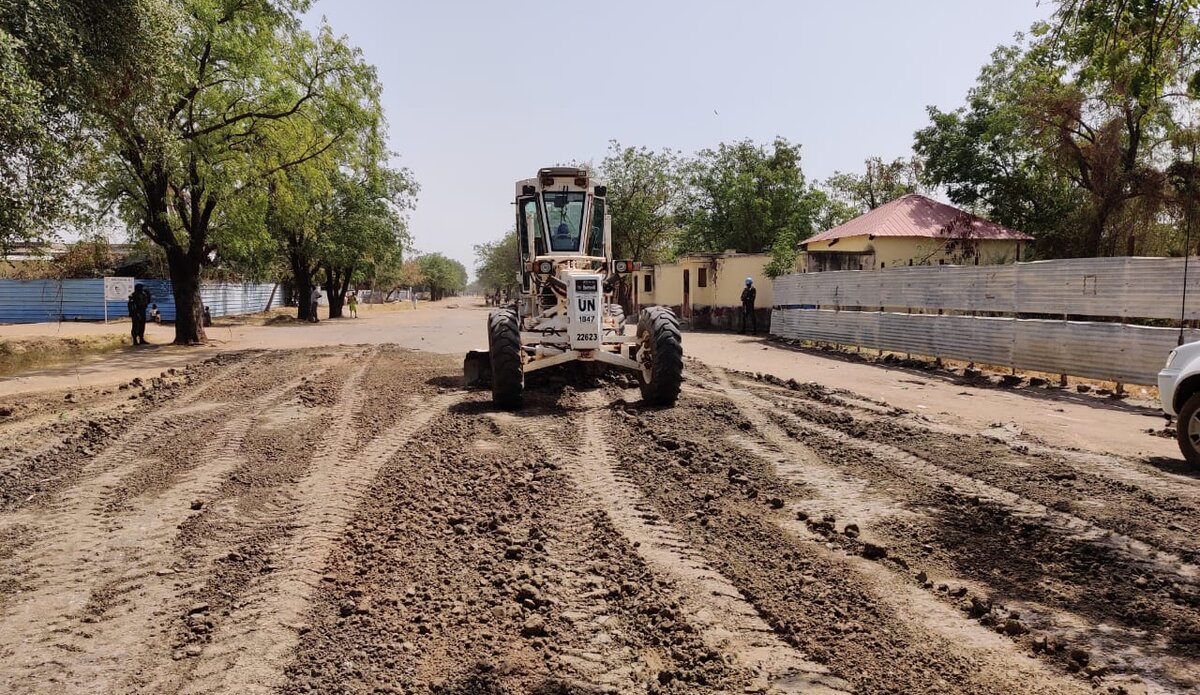
By Peter Kuol Kuch
Pregnant women in Bor town fear for their health and the safety of their unborn children due to severely damaged roads. Residents complain that most road networks connecting residential areas are riddled with potholes, making travel unsafe, especially for expectant mothers heading to markets or the main hospital. People with disabilities are also bearing the brunt of this situation, with many forced to abandon their wheelchairs and tricycles.
At least four major roads linking the town center with residential blocks are in critical poor condition. These roads are riddled with potholes and rough surfaces, making transportation difficult—especially on Bodaboda and Raksha
But for pregnant women, the situation is more than just uncomfortable—it’s dangerous. An expectant mother, Mary Akeer, explains the condition she faces while travelling on Bor roads.
“When you ride a Raksha or Bodaboda to town, it shakes a lot. It’s not healthy for our babies. We worry our pregnancies might not be safe due to all the bumping and potholes. Even when the baby is safe, we still feel very uncomfortable that day.” Mary Said.
Mary added that midwives have advised pregnant women to avoid traveling on motorcycles or tricycles through these damaged roads for the safety of their unborn babies.
Meanwhile, Kenya Mach, a women’s leader from the Jonglei State Women’s Association, is calling for urgent intervention.
“Many women in Jonglei are involved in small businesses and income-generating activities. Good road access is essential for safe travel and economic empowerment.” She stressed.
However, the challenges of poor roads in Bor don’t stop with pregnant women. People with disabilities are also deeply affected.
Grace Kuei, who is physically impaired, said she has fallen several times while using her tricycle on the town’s roads.
“The town can’t fall apart under your watch. These women you see struggling on the roads are your sisters and your brothers’ wives. The children they lose due to poor roads could be the future generation. Bor is rich. There are resources here. Use the revenues to fix our roads.” Grace stated.
Grace said many of her peers with disabilities have stopped leaving their homes entirely due to the poor road conditions.
Meanwhile Civil society activist Bol Deng Bol, Chairperson of the Jonglei Civil Society Network, also criticized the government for failing to address the issue.
“This road doesn’t require huge funds to rehabilitate. Taxes are collected here, but no one wants to use them for road repairs.” He said.
Bol called for urgent road repairs not only in Bor Town but throughout the state to facilitate services and boost local businesses.
On other hand, the Mayor of Bor Municipal Council, Hon. Jacob Achiek, admitted that the roads are in poor condition and assured the public that rehabilitation would begin soon.
“I’m doing my best. I just returned from the market where I spoke with shopkeepers. With their support, we’ll start renovating parts of the road. The delay was due to rainwater, but now that the water has receded, work will begin in the next one or two days.” Achieved said.
According to Bor State Hospital, the maternity ward records between 40 to 50 cases of miscarriage every month. While many cases are linked to malaria and physical strain during pregnancy, doctors also warn against the risks of traveling on rough roads.
Midwives urge expectant mothers to minimize movement on Bodabodas and Rakshas, especially along damaged routes.
Jonglei State’s boasts of over £400,000 a month in income tax from humanitarian workers and local business taxes yet development projects like road rehabilitation remain stalled.
Leaving pregnant women and persons with disabilities in Bor Town in danger.
Editors’ note: ‘’This story was reported with support from Journalists for Human Rights, under the Tackling Mis/Disinformation Project, funded by the Government of Canada’s Peace and Stabilization Program.’’
